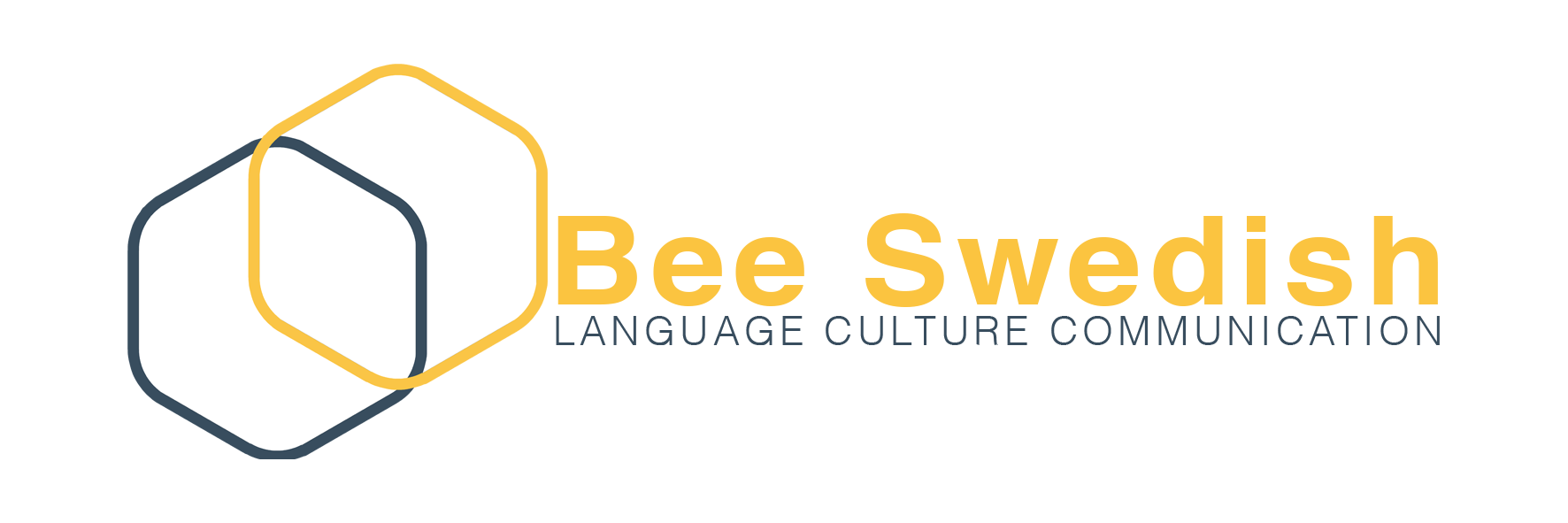I am grateful my students are so patient with me. I am fully aware that as a teacher, I often contradict myself. I start off by blaming my students for not bringing a dictionary to the course, and when they finally show up with one, I tell them off for using it too much.
I teach exclusively in Swedish, and I might appear just a little bit too stubborn about this. But from experience, I know that, if I say one word in English, once, it will not be only once. And then, where would you draw the line for what should be said in Swedish, and what should be explained in another language? I must say, with a bit of practice, I have become quite good at explaining new vocabulary, even at beginner’s level. But sometimes it just does not work. Or it would take ten minutes of important classroom time to explain just one word, ten minutes that could be used in a much more productive manner. In such cases, I really appreciate if my students have brought dictionaries, to look it up. It takes a few seconds, and after hearing the universal ahhh, we can continue.
For beginner’s level, you do not need more than a small bilingual pocket dictionary. Norstedts make quite good bilingual languages, translating from Swedish to a handful of European languages, and Russian. You will find these at most bookshops. As you progress, you might want to invest in the larger version, to keep at home, but it is not necessary. I strongly advise my students not buy a traveller’s dictionary, such as the ones from Berlitz. This is not because they are bad, they are just not designed for learning the language thoroughly.
As you will discover, there is a problem with buying a bilingual dictionary from a Swedish publisher. That is, they are made for Swedish speakers – studying your language. At the same time, as Swedish is a relatively small language; there is probably not much money to make for a publisher in your country to publish a comprehensive, up-to-date Swedish dictionary. Sadly, I have also discovered that English, German, Spanish and French dictionaries are often of much better quality than less “popular” languages (from a Swedish point of view). This is very regrettable, and I am somewhat embarrassed about this bias, but it is important to point out. Therefore, if your English skills are good enough, it might be a reasonable solution to buy a Swedish-English dictionary instead of one that translates into your own language.
There are some digital dictionaries online, and some good and not so good apps. I personally like tyda.se, but I believe this is mostly because of habit. Digital dictionaries can be very useful, especially on the go, and
I have, however, in my own amateurish empirical studies, noticed that paper dictionaries are better than digital ones.
Google Translate should be used with caution. It can be very useful if you want to understand the general meaning of a text. Always use Google translate to translate a foreign language into your own. You will see plenty of mistakes and weird things, but you will probably understand. Never use it to translate something in your own language into a language you do not know very well. It is not useful as a dictionary. I have had students who sometimes attempt to write their essays using Google Translate. If you have little time and consider this solution, remember: you will not learn any Swedish (that is the point of studying a language, right?), your teacher will discover it right away (I promise),
Sometimes I confiscate my students’ dictionaries. They are being used too much. I have seen conversations when a student picks up the dictionary two or three times per sentence, in order to find the exact word for what they want to say. This is not productive. You will never reach fluency this way. You have to accept that for a really long time, you cannot say such intelligent things as you can say in your own language. Instead of the correct word, you might need to explain what you mean, or use an approximate word instead. If it still tempting to you, please invest in an elastic band, or some masking tape. Wrap this around half of your dictionary (the part translating from your language into Swedish), so that you need to think twice before using it.
Any word you look up in the dictionary should be remembered. Learning a new language, ultimately, is about remembering. You cannot do it later; you need to do it now. Luckily, your brain is designed for remembering things. It is possible. Keep a notebook. Write down every word you look up in the dictionary. Have a daily limit; say, a maximum of ten new words per day. During the day, revise your new words, once in a while, on the bus, whilst waiting for someone, before sleeping. Learning new vocabulary is not complicated, but hard work.
As you progress to an advanced level, the good news is that your Swedish is getting better. The bad news is that you need a dictionary that matches your language skills. From a B2 level, I strongly recommend using Natur och Kulturs svenska ordbok. It is Swedish only, which means nothing gets lost in translation, and it is impossible to use it the wrong way around.
